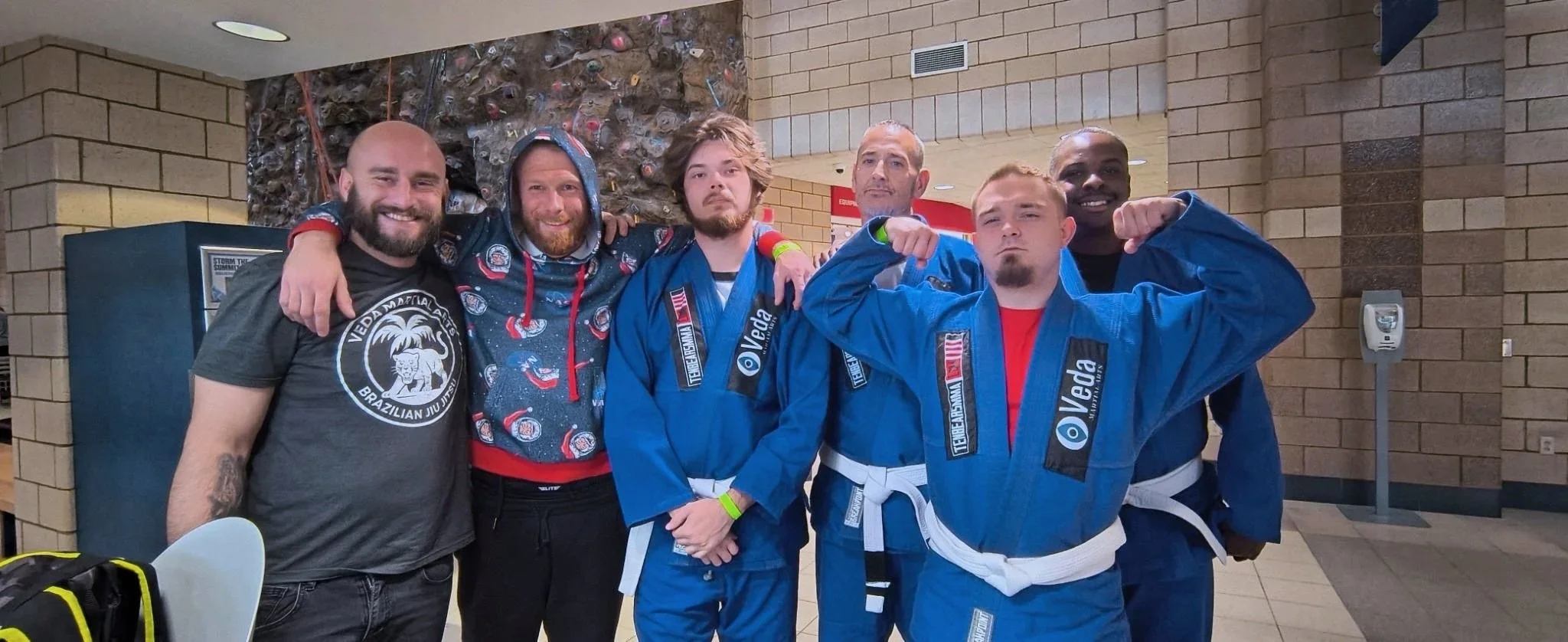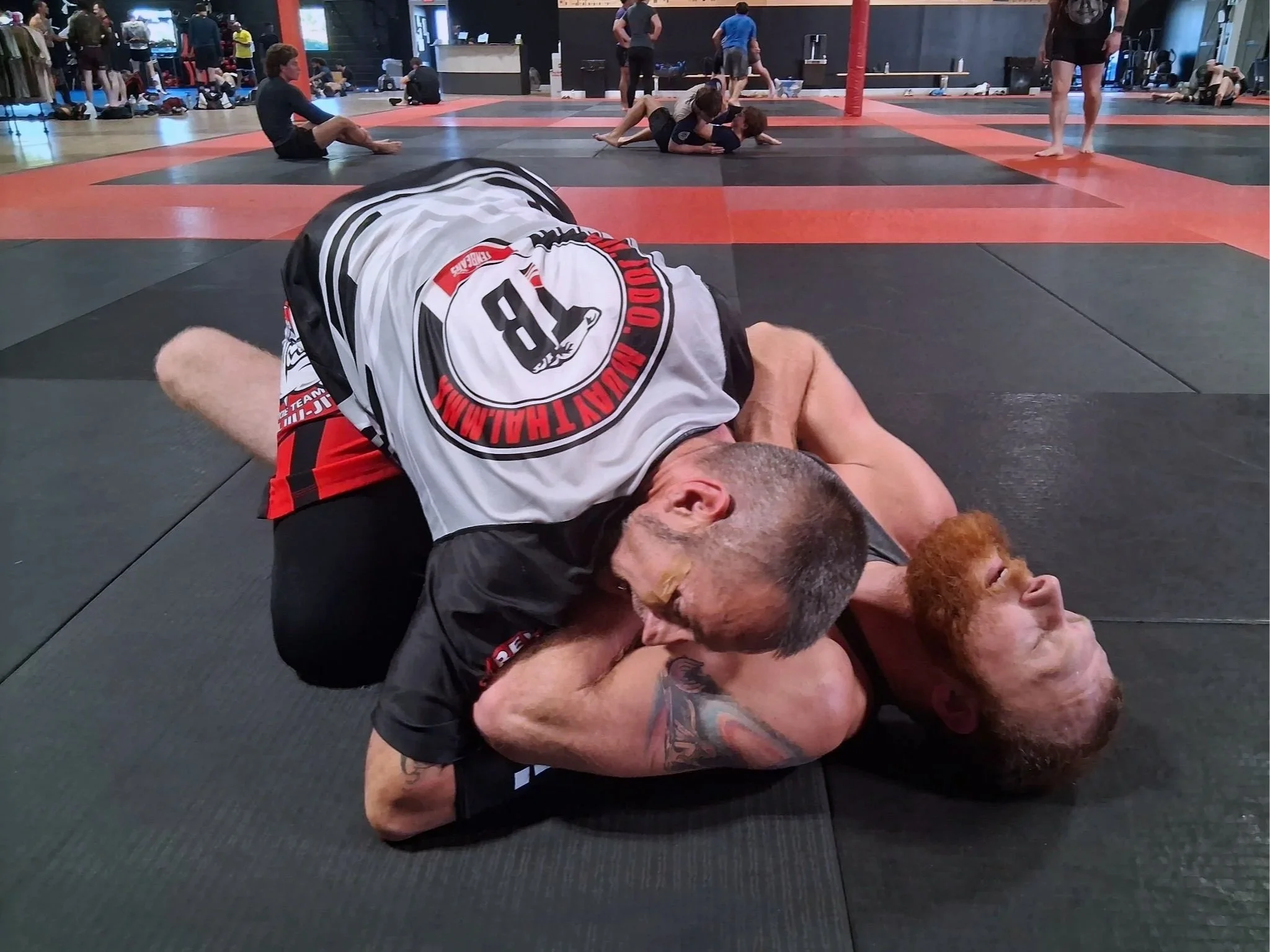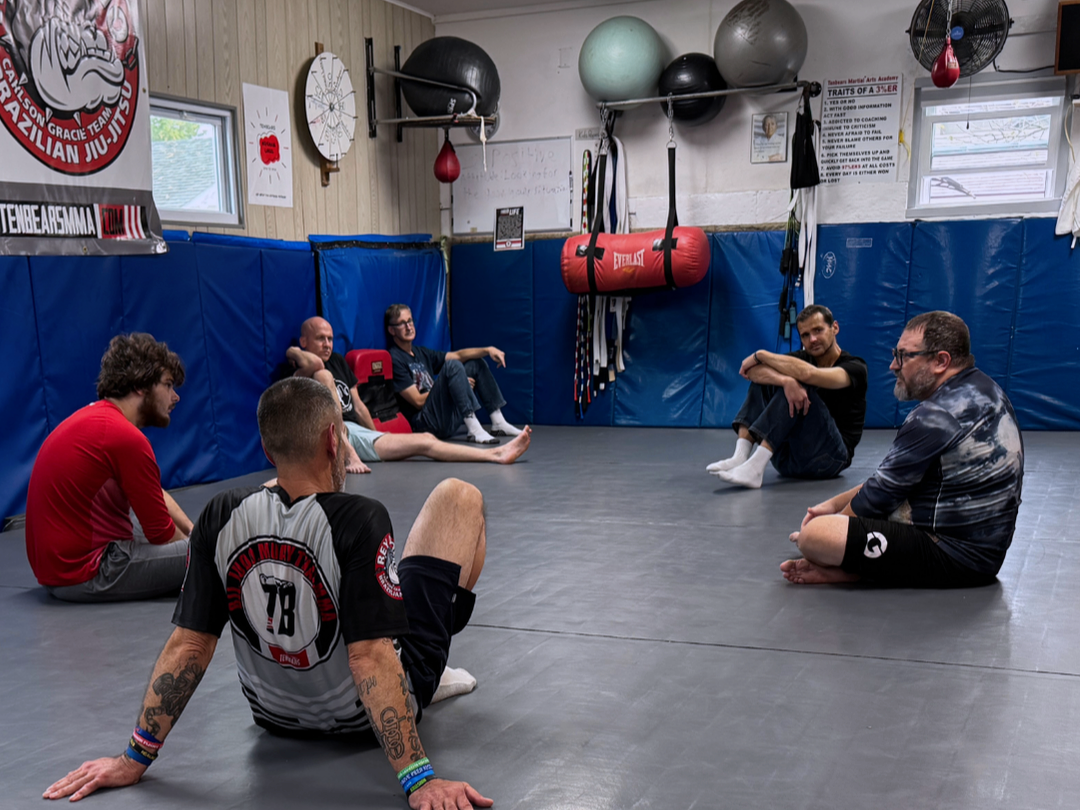Martial Arts at Veda
Resilience through Movement, Structure, & Connection
Turn Stress Into Strategy.
In recovery, tension used to mean escape. In training, tension becomes information. A tight grip, a fast breath, a sudden rush of fear—none of it means “panic,” it means “pay attention.” You learn to respond instead of react.
No experience necessary.
It's about learning the basics and building confidence. You have nothing to prove.
What we offer
Our wellness modalities complement traditional approaches to addiction treatment. They offer creative and expressive avenues for individuals to explore and implement new emotional and physical disciplines.
-
Train 3x weekly with experienced instructors
-
Move in ways that regulate your nervous system and help you reach new personal goals
-
Train with men walking the same path—no judgment, just growth
-
Move and breathe to rebuild your relationship with your body
Rebuild from the Ground Up
Addiction strips away your body, your confidence, your sense of self. Jiu jitsu gives you something concrete to work toward. You earn rank. You see progress. You learn to focus on one thing at a time, make decisions under stress, and trust your instincts. You start seeing yourself as someone capable of control, not chaos.
Feel Without Fleeing
Old patterns don't work anymore. On the mat, you meet intensity head-on—pressure, discomfort, frustration—and you learn to breathe through it. Martial arts teaches you how to hold your own ground—physically, emotionally, psychologically. You learn when to apply pressure and when to yield.
Practice Discipline in Real Time
Show up. Follow the structure. Respect your coach. Listen to feedback. Jiu jitsu doesn't negotiate—and that's the gift. Recovery requires the same muscle: consistency, humility, commitment..
Find Your People
Brazilian Jiu Jitsu isn't talk. It's sweat, struggle, and shared effort. You roll with guys who know what you're carrying because they're carrying it too. That kind of bond develops from showing up together.
Build Resilience
You'll tap. You'll get caught. You'll feel outmatched. And then you'll get back on the mat. That's the practice—not perfection, but presence. Learning to be uncomfortable and stay in the room. That's recovery.
Turn Stress Into Strategy
In recovery, tension used to mean escape. In training, tension becomes information. A tight grip, a fast breath, a sudden rush of fear—none of it means “panic,” it means “pay attention.” You learn to respond instead of react.
Ready to Learn More?
Call us to see if Veda is the right fit for your recovery. Let’s have a conversation about what you need and what we offer.






